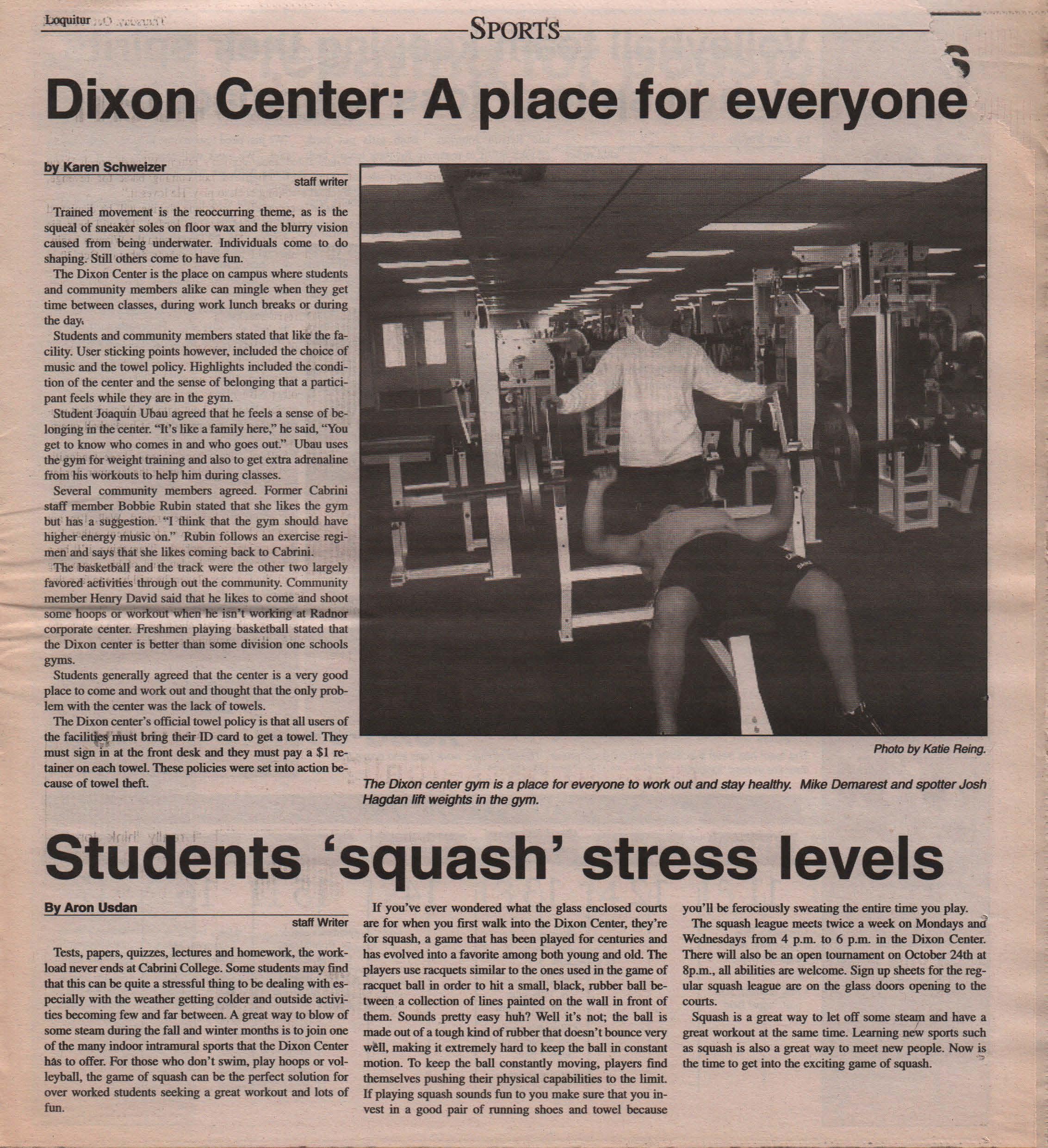
4 minute read
Attack spawns apprehension in consumers
by catherine Dilworth staff writer
Banks, airlines, plane makers, insurance companies, entertainment companies.,travel and leisure finns, online travel agencies, the list is dismally long of individual companies and entire industries that are already being affected by an abmpt drop in consumer and business spending; a decline that unexpectedly came in an already shaky economy.
Advertisement
What it all means, say economists, is that the U.S. economy is going to experience some extremely tough times in the months ahead, despite lower interest rates, tax rebates, talk of further tax cuts and now what financial markets are dubbing a "war premium" as efforts to find the culprits behind last month's unspeakable acts goes forward.
Even soothing words from Federal Reserve Chairman Alan Greenspan, testifying before Congress on Sept. W, that any shortterm uncertainties will not undo long-term prosperity, did little to instill confidence on Wall Street
"Consumers are like deer in the headlights. They're just paused and waiting to see what happens next," said Sherry Cooper, chief economist with Harris Bank / Bank of Montreal Cooper downgraded her firm's forecast after last month's attacks to reflect what she expects will be a much longer time-frame for recovery.
In Manhattan, few are in a shopping mood, and visitors to the city have either left in a scramble or canceled their plans. Aagship department stores such as Bameys, Bloomingdale's and Saks Fifth Avenue are practically empty; the landmark Plaza Hotel is considering closing its famed Oak Room and Oyster Bar because of Jack of business.
At the Loews Hotel in Miami Beach, occupancy was at 12 percent Tuesday down from 70 percent last Monday. Convention meetings scheduled for the next few weeks are being canceled And its not just tourists too shell shocked to travel. Hundreds of meetings and conventions are being canceled across the nation, a trend analysts say may drain billions more dollars out of a travel industry already staggering before last month's terrorist attacks.
"'lbe airlines are the vehicle, for the most part, for delivering guests and business travelers to our doors," said Jonathan M. TISCb,
VILLANOVA UNIVERSITY GRADUATE AND PAJrf.DME
1JNDE&GllADIJATB the chief executive of Loews Hotels. "If the people are not flying, they are not staying in our hotels. If they are not in hotels, then they are not eating in restaurants or shopping in retail."
Other industries, too, are reeling from the effects. The cruise line industry is suffering as travelers cancel their vacation plans or simply decide they don't want to fly to the destinations where the ships depart. Both Carnival Cruise Lines and Royal Caribbean have indicated bookings are down about 40 percent in the past week:.
Greenspan, in his testimony, acknowledged too that the unprecedented shutdown of America's air travel and tightened border restrictions have led to dramatic shortages of parts and products.
VUlaoova c.oonclly Calter .
16 seminars on VUJanovaprognms,
Lots of Layoffs, Warnings
Many companies wasted no time-sharing their expected bad news with Wall Street, unveiling expectations of slowing sales and redundancy of wotkers.
Among them were: Dow Jones/New York Tunes, Walt Disney, Boeing, Viacom, American Express, American Airlines, Charles Schwab, and Hilton Hotels.
Economic activity was severely disrupted following the terrorist attacks. Airline travel, once so routine it bad become the equivalent of a new mass transit, is reemerging with a web of delays and new security measures.
General Motors, Ford and Toyota, once able to transport parts overnight, were forced to shut down plants throughout North America because of security-related traffic snarls at the Canadian border. And a new generation of high-tech wireless communications possibly on hold because the military may keep the airwaves that cell companies need.
Help is said to be on the way, but it's still unclear how much of a difference it will make as the nation finds itself pushed over the edge into an almost certain recession.
The White House plans to help boost the struggling economy with a stimulus package that will likely include more tax cuts that could take effect before the end of the year. Policymakers aim to keep consumers confident and spending, and prevent corporate balance sheets from further unraveling.
President Bush, in New Yolk today to meet with business leaders and promote the stimulus package, said the country is starting to get back on track after the devastation. "Americans ought to go about their business, and they are beginning to do so. They ought to take their kids on vacations, they ought to go to ball games."
Also offering some relief is the Federal Reserve, which has twice cut short-term interest rates since the attacks. In pushing down the federal funds rate to 2.5 percent Tuesday, the Fed acknowledged that events of Sept. 11 hurt an already weak economy and further dampened business and consumer spending.
But uncertainty over the shape of the administration's anti-terrorism campaign is likely to weigh on the economy as long as Americans are making sacrifices to deal with threats.
"In the past 10 years, we dido 't have to pay attention to the bad guys," said Neal M. Soss, chief economist with Credit Suisse FI.ISt Boston. "We were allowed to devote ourselves to investing, consuming, living the good life. Now we're going to have to pay the costs of protecting ourselves from the badguys."
But that doesn't mean consumers have panicked or given up. A new ABCNEWS.com/Money magazine poll shows consumer confidence has improved slightly since the attacks.
And anecdotal evidence from around the country suggests many Americans are spending again. Mark and Laura Wainwright, for instance, considered postponing their plans to buy a bigger home after Sept. 11. But with 30-year mortgages available at 6. 7 percent, the Vuginia couple figured the opportunity was too good to pass up.
-story continued on page 4







